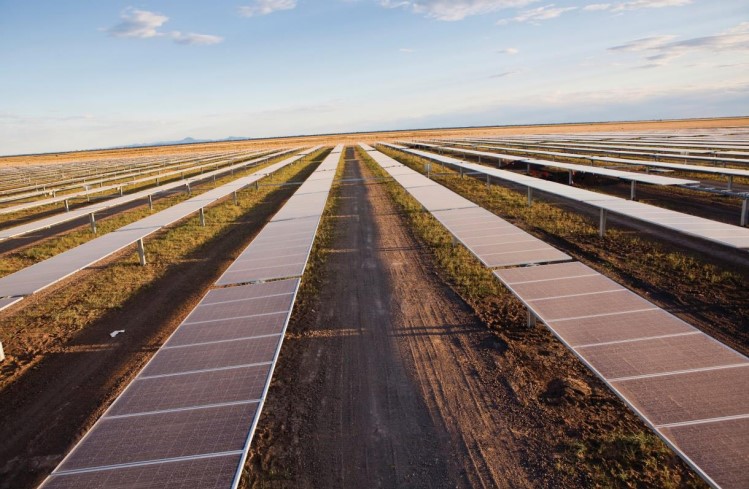New South Wales (NSW) Planning Minister Paul Scully has acknowledged the criticism that the state has been too slow in approving renewables projects and has vowed to improve the process.
Speaking at the Smart Energy Council conference in Sydney this week, Scully said the government is prioritising the development of renewable energy projects and will continue to work closely with industry and impacted communities to strike the right balance between supporting renewable energy projects and responsible development.
“The NSW planning system has been criticised for being too slow,” he said. “I confess, when we approved the Yanco Delta wind farm late last year, I was pretty surprised that it was the first wind farm to be approved in NSW in nearly three years.”
Scully said the government is aiming for almost 50 large-scale solar, wind, and battery storage projects to be approved in NSW this year.
“We have got a further 29 projects in the planning stage with an additional 20 projects expected to be submitted to the department or the coming months,” he said. “Most of these are expected to be determined this year.”
Jacqui Mumford, chief executive of the Nature Conservation Council of NSW, welcomed Scully’s commitment to speed up the approvals process, saying renewable investors in NSW have been languishing while states like Victoria and Queensland have approved impressive amounts of renewable energy.
“We’ve been hearing for a long time that the approvals process in NSW isn’t fit for purpose,” she said.
“The process sounds almost Kafkaesque, with department officials unable to tell renewable development proponents what information they will need to provide in order to see a project approved.”
“Instead of standardised questions, applications are drip fed back and forth between investors and various agencies, leading to duplication and huge delays as different departments seem unable to talk to each other and work out if an application meets their various criteria.”
Scully’s commitment comes after the NSW government released data showing that 17 large-scale renewable energy projects were approved, either by the Department of Planning, Housing and Infrastructure (DPHI) or the Independent Planning Commission (IPC), in 2023.
The projects include three wind farms, six solar farms and nine large-scale battery projects with a combined capacity to generate and store 7.6 GW of renewable energy.
The approved solar farms include Terrain Solar’s 152 MW Marulan project at Carrick, X-Elio’s 90 MW Forest Glen at Minore, Blind Creek Solar’s 350 MW facility at Bungendore, Trina Solar’s 200 MW Glenallen project at Albury, Elgin Energy’s 60 MW Glanmire near Bathurst, and Oxley Solar’s 215 MW solar farm being developed in the state’s New England region.
The battery projects include Akaysha Energy’s 400 MW / 1,600 MWh Orana battery energy storage system (BESS), Acenergy’s 120 MW / 240 MWh Apsley BESS, and the 500 MW / 1000 MWh Wellington South BESS being developed jointly by Shell and Empyr Energy.
Firm Power secured approval for three big battery projects: the 150 MW / 300 MWh Muswellbrook and 50 MW / 100 MWh Awaba projects in the Hunter region, and the 170 MW / 340 MWh Beresfield battery.
Risen Energy’s 100 MW / 400 MWh Coleambally BESS, Neoen’s 500 MW / 1,000 MWh Great Western BESS at Wallerawang, and the 850 MW / 1,680 MWh Waratah Super Battery being developed by Akaysha at Munmorah, on the state’s central coast, round out the nine battery approvals.
NSW Energy Minister Penny Sharpe said the state is now almost halfway towards achieving it’s 2030 renewable generation target which is to supply 33 TWh within in the next six years, and over a quarter of the way to the 2 GW long-duration storage target.
“These approvals represent the NSW government’s commitment to accelerate the transition to renewables, so households and businesses have reliable access to clean and affordable electricity,” she said.
Sharpe said NSW is now home to approximately 13.5 GW of renewable energy generation capacity, about 53% of total generation in the state, and 574 MW of long-duration storage.
This content is protected by copyright and may not be reused. If you want to cooperate with us and would like to reuse some of our content, please contact: editors@pv-magazine.com.









2 comments
By submitting this form you agree to pv magazine using your data for the purposes of publishing your comment.
Your personal data will only be disclosed or otherwise transmitted to third parties for the purposes of spam filtering or if this is necessary for technical maintenance of the website. Any other transfer to third parties will not take place unless this is justified on the basis of applicable data protection regulations or if pv magazine is legally obliged to do so.
You may revoke this consent at any time with effect for the future, in which case your personal data will be deleted immediately. Otherwise, your data will be deleted if pv magazine has processed your request or the purpose of data storage is fulfilled.
Further information on data privacy can be found in our Data Protection Policy.